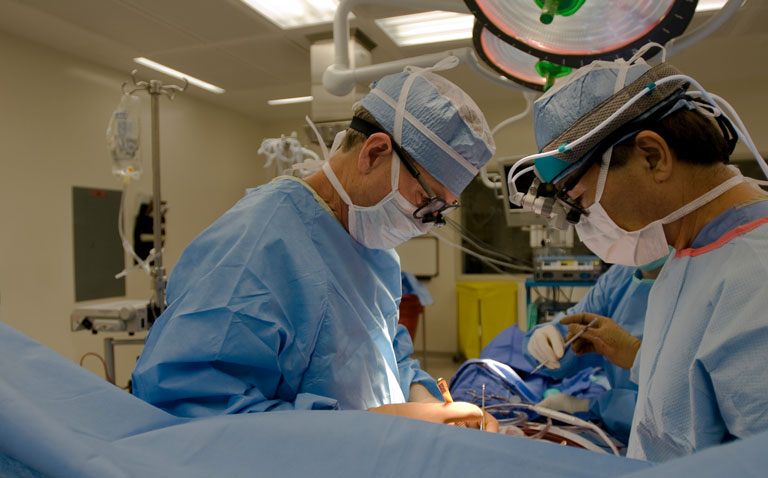Over 35,000 adults undergo cardiac surgery in the UK every year with a further 1 million worldwide.
While short-term results of surgery are excellent, many patients fail to obtain long-term benefits the reasons for which remain unclear. Academics from the University of Leicester are researching why this is and have defined the top priorities for UK cardiac surgery research.
The Leicester team have worked with the James Lind Alliance, a non-profit making initiative that brings patients, carers and clinicians together in Priority Setting Partnerships to identify and prioritise the top 10 unanswered research questions or evidence uncertainties.
Funded by Heart Research UK, the Adult Cardiac Surgery Priority Setting Partnership brought together patients, carers, nurses, doctors, pharmacists, organisations such as the Leicester Centre for Black and Minority Ethnic Health. With an independent chairperson appointed by the James Lind Alliance, the team used a Delphi approach to identify the top 21 priorities from over 1000 topics identified in an international survey launched in 2018.
Professor Gavin Murphy, British Heart Foundation Chair of Cardiac Surgery and Director of Leicester Clinical Trials Unit who leads the Leicester team said: “This work, which represents the needs of patients, will enable all stakeholders to focus their efforts at addressing the research priorities that we have identified.
“This approach means that we are more likely to effect change through our research that will benefit patients and the health service.”
Kate Bratt-Farrar, Chief Executive of Heart Research UK, said: “Setting priorities is vital to ensure that medical research is advancing in the right areas. A project like this puts the people affected by heart conditions at the forefront of that process and provides a valuable link between researchers and clinicians in laboratories.
“Heart Research UK has a long history of funding pioneering medical research, and we are proud to once again be at the cutting edge, working with patients to steer the future of cardiac surgery.
“We know research works, and it is through innovative projects like the PSP that we can reach the next breakthroughs and keep those we love around for longer.”
The Top 10 priorities are:
1) Quality of life: How does a patient’s quality of life change (e.g. disability-free survival) following heart surgery and what factors are associated with this?
2) Frailty: How can we address frailty and improve the management of frail patients in heart surgery?
3) Chronic conditions: How can we improve the outcomes of heart surgery patients with chronic conditions (obesity, diabetes, hypertension, renal failure, autoimmune diseases etc.)?
4) Prehabilitation: Does prehabilitation (a programme of nutritional, exercise and psychological interventions before surgery) benefit heart surgery patients?
5) Heart valve intervention: When should heart valve intervention occur for patients without symptoms?
6) Surgical methods: How does minimally invasive heart surgery compare to traditional open surgery?
7) Organ damage: How do we minimise damage to organs from the heart-lung machine/heart surgery (heart, kidney, lung, brain and gut)?
8) 3D Bioprinting: Can we use 3D bio-printing or stem cell technology to create living tissues (heart valves/heart) and repair failing hearts (myocardial regeneration)?
9) Atrial fibrillation: What are the most effective ways of preventing and treating post-operative atrial fibrillation?
10) Infection: How do we reduce and manage infections after heart surgery including surgical site/sternal wound infection and pneumonia?
A final workshop that included patients, carers and medics, chaired by independent moderators, with key stakeholders attending as observers, selected the Top 10. The results of this process and a plan for translating these priorities into research studies are published today.
To help implement this plan Heart Research UK and the British Heart Foundation Clinical Research Collaborative will invite clinicians, leading researchers, and members of the public, to a National Cardiac Surgery Research Workshop in June 2020. This will keep patients and carers at the centre of the national research programme, and increase the likelihood that the PSP priorities are addressed by research of the highest quality.










